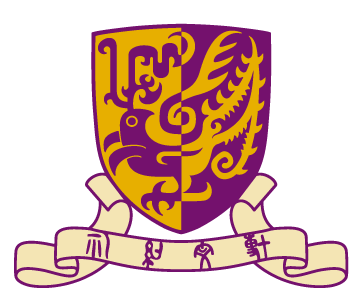8 December 2017 (Friday)
Teachers Share Experience on Blended Learning
The second recruitment exercise of the eLearning Community of Practice (eLCoP) was successfully held on 8 December. Thanks to our presenters as well as our core members of the eLCoP, Dr Isabel Hwang, Dr Fred Ku and Dr Ann Lau, the event captured a lot of impressive insights, ideas and strategies of practicing e-learning and blended learning in the university. The interesting discussion among our presenters and participants has further facilitated future educational innovations.
Isabel shares her strategies on e-learning with micro-modules
Seeing great potential in using mobile devices to enhance students’ learning experience, Isabel actively produces a number of micro-modules as some of her important teaching materials for both medical and non-medical students. They serve as effective tools for engaging students in self-learning before class. During class, Isabel focuses on complicated concepts and case studies, which help consolidate students’ understanding in the subject matter. Isabel also points out some challenges teachers may encounter when using this teaching approach, including being time-consuming and being unfamiliar with the technologies. This has underlined the importance of the eLCoP – to give each other support among the community and to solve potential challenges together when implementing innovative teaching. Isabel advised that one challenge of making micro-modules is to select the right technology (one that has a longer lifespan) to base on. She recalled that she used Flash in her first generation of materials. She then spent much effort to gradually transform the Flash animations to animated videos, courseware packages and applications using the newer technologies.


Fred explains how he enhances student involvement with flipped teaching and others e-learning strategies
Fred believes that teaching is more than just lecturing. He tries different strategies to improve students learning experience. For instance, he adopts Flipped Classroom approach and develops some strategies to increase student involvement in class. For example, instant response games and simulation games are played in class to get students involved in real-life scenarios. Small competition and group discussion are followed by a debriefing session, which significantly helps student comprehend the economic concepts and enhances interactions between the teacher and students. Besides, to consolidate students’ learning after class, students are required to produce a short video that illustrates the economic concepts using real-life examples. Fred believes that these videos can be shared among students to encourage peer learning and become a valuable source of learning and teaching materials for future use. Fred has successfully enhanced student involvement in his class. According to the student survey, most students express enjoyment from the instant response game and other class activities. The positive feedback motivates Fred to explore more collaboration with teachers who are interested in developing flipped teaching.
Ann shares the use of educational emerging technologies in her teaching
Teaching Biomedical subjects is not easy because it involves so many complex concepts and cell reactions that are barely seen under microscope. Ann and her teaching team therefore apply emerging technologies such as virtual reality (VR) and augmented reality (AR) to a one-stop learning platform, where human organs, cell reactions and pharmacological mechanism of drugs are visualized. She stresses that the application of new technologies in teaching turns imagination into reality. This one-stop platform caters to different needs and interests of Biomedical students. They can also react to the pre-set questions when they explore the 3D animations in the platform. Such interesting learning platform integrates different disciplines in Biomedical Sciences, and enhances students’ motivation to engage in the learning materials. At the end of her sharing, Ann anticipates that more colleagues interested in this field can gather to develop more interactive teaching and learning courseware using VR and AR technologies.

We welcome all like-minded teachers to join our activities in the interest groups and share with us pioneering teaching practices. We believe our discussion can nurture more collaboration among the teachers, thus improving the current teaching approaches in an all-round manner.
Detail
eLearning Community of Practice (eLCoP) is a new initiative to assist teachers working on similar eLearning strategies to network and gather together regularly. Together they gain support and advice from each other. Typical activities in each of the 'interest groups' will include experience sharing by member teachers, and invited talks on related pedagogy or technology. The interest groups may also be the platform that nurture bigger inter-disciplinary projects.
The Preview Workshops are our first attempts to recruit teachers. Devoted teachers who have pioneered certain eLearning strategies will be showcasing their work as well as explaining the preliminary activity plans of the interest groups they are making the effort to establish.
In this Preview Workshop II, the highlights are:
-
Introduction of eLearning Community of Practice
Professor Paul LAM, Centre for Learning Enhancement And Research
-
Micro Module Courseware Development (MMCD)
Dr. Isabel Shui Shan HWANG, School of Biomedical Sciences
-
Enriching Classroom Interactions and Learning with Technology
Dr. Fred Kei Tat KU, Department of Decision Sciences and Managerial Economics
-
Educational Emerging Technologies (virtual reality and augmented reality)

